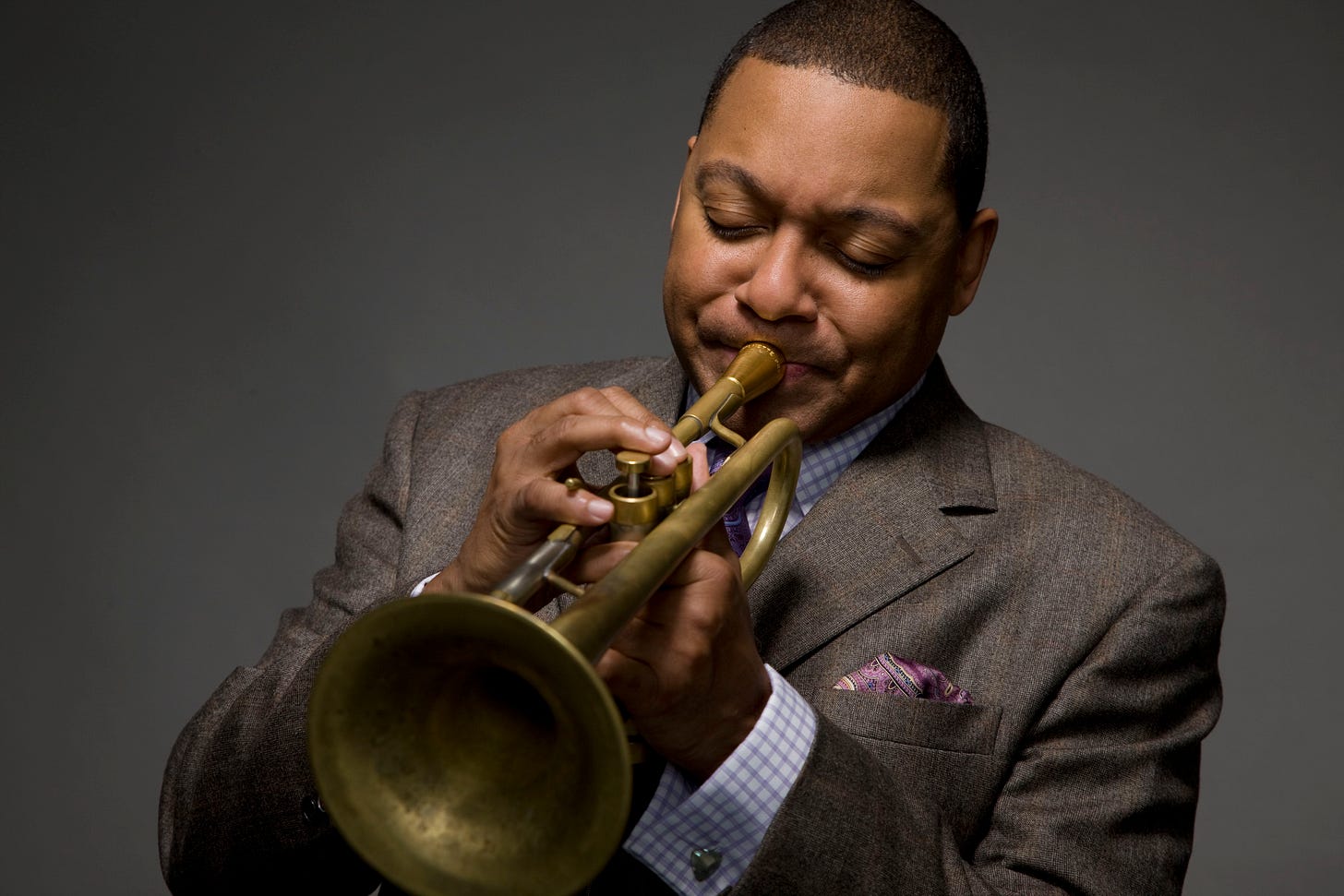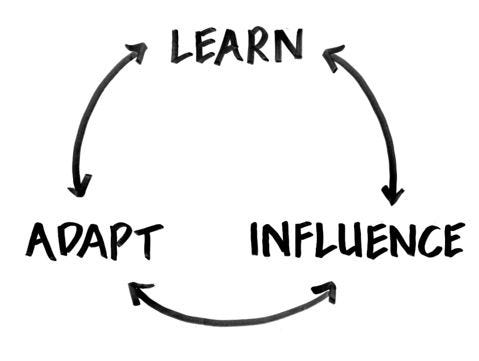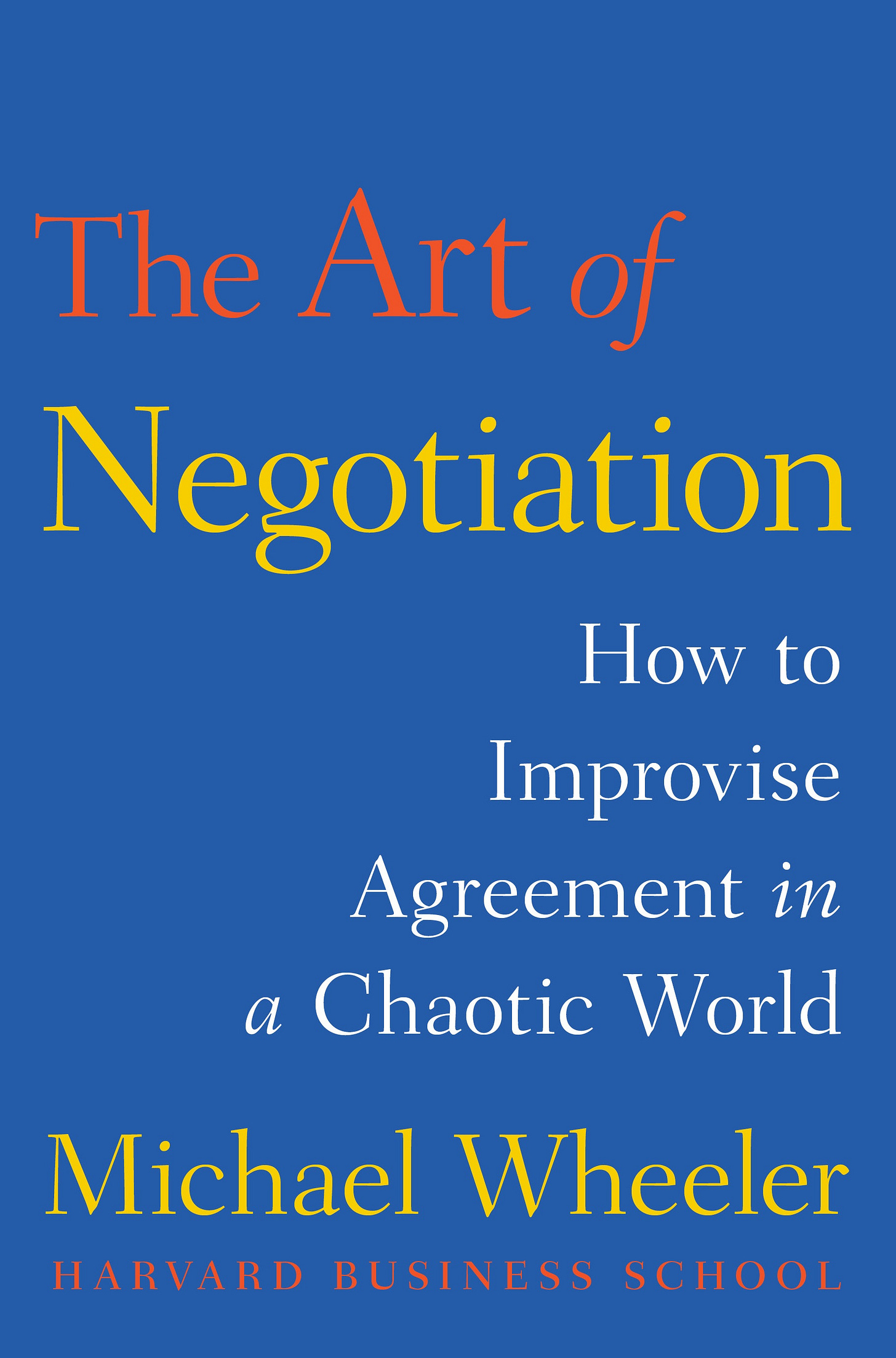Welcome!
Improvising agreement in a chaotic world
A quick word first
Thanks for visiting The Jazz of Negotiation! In this inaugural post you’ll get a feel for the purpose of this publication, its broad scope, and the variety of content it provides.
A good portion of it is free for all who sign in. In addition, paid subscribers will constitute an interactive community where we share insights, experiences, and questions. There will also be Q and A threads and from time to time, videos, and quick exercises.
Thanks! Mike Wheeler
“Negotiation is like jazz. It’s improvisation on a theme. You know where you want to go, but you don’t know how to get there. It’s nonlinear.” Ambassador Richard Holbrooke.
“The real power of jazz-and the innovation of jazz-is that a group of people can come together and create art, improvised art, and can negotiate their agendas with each other, and that negotiation is the art.” Jazz great, Wynton Marsalis.
Enhancing our skills
Day in day out, we all negotiate. It’s part of lives, both professional and personal. It may be negotiating a job offer or securing funds for your start-up. Maybe it’s selling your house or buying car. Or it could be dealing with your exuberant two-year-old in a highchair. If that’s you, first of all, congrats! (Second, I wish you luck.)
Wherever you are, just beginning your career or in a senior position, negotiation is ubiquitous. A while back I heard the CEO of a big company say, “Just once, I’d like to make a unilateral decision.” You may know that feeling.
And all of us, old and young, can get better at negotiating. By better, I mean more adept at crafting creative solutions to break seeming stalemates. Likewise, better at building constructive relationships so that promises are kept and implementation is easy. Advancement also includes learning how to manage disputes so that minor squabbles don’t erupt into costly conflicts.
When I say all of us can improve, that’s includes me. I’ve been teaching and writing about negotiation for decades now. And thanks to my students, colleagues, and clients, I continue to learn ever more about this complex and fascinating field.
A fresh perspective
I admit that over the years I’ve become a something of a contrarian in my field. I’m skeptical about conventional negotiation theories. Specifically, I don’t buy popular one-size-fits-all approaches, whether they’re of the “win-win” variety or the “take no prisoners” kind.
The best negotiators that I know are instead great improvisors. They recognize that context matters. What works in one situation can easily backfire in another. Moreover, negotiation is a dynamic, often uncertain process. The people we deal with have their hands on the steering wheel, too. They’ll have their own ideas about where to go and how to get there. And they may be just as smart, determined—and fallible—as we are ourselves. We can’t dictate their agendas, attitudes, or actions any more than we’d let them dominate us.
Plain and simple, that means we can’t script the process. Adaptability is essential in negotiations from start to finish. Opportunities may pop up. So, too, for obstacles. Power may ebb and flow. Talks that crawl along can suddenly race forward or veer off in another direction. Even our own objectives may evolve. We must make the best of wherever that road takes us.
But that doesn’t mean just making it up as you go along. Far from it. Improvising is both an art and a discipline.
In my work I’ve drawn on concepts and practices from other fields that demand agility on both a macro and micro scale. They include jazz, medical diagnosis, improv comedy, and even military doctrine. At first glance those may seem light years away from negotiation. But they all provide practical lessons that can enhance your performance at the bargaining table.
The punchline? In negotiation, you’ve got to be learning, influencing, and adapting from beginning to end. It’s an on-going process that takes place in a strategic environment. Whatever you say and do, prompts responses—intended and otherwise—from your counterpart. You then respond to that and the process further unfolds.
Yes, having an initial plan is important. But you can’t let the plan have you.
General Eisenhower, the architect of the D-day invasion in World War II, famously said, “Plans are worthless.” What’s been forgotten is that he added, “Planning is everything.” Look forward to your best-case scenario but also prepare for the worst possibility. For more on all this, see my Art of Negotiation: How to Improvise Agreement in a Chaotic World now available in ten languages.
Content and engagement
I’ve written other books about negotiation and lots of articles, too. They’ve all pushed me to expand my learning and stretch my own thinking. I enjoy sharing with others what I’ve discovered. But conventional publication is a one-way conversation. When the books go to press and get shipped, that’s the end of the story for me. Feedback is limited, at best. I never get to hear readers’ questions, comments, and stories.
That’s why I launched The Jazz of Negotiation. I want to spark an open exchange with fellow travelers who will share their experience and ideas.
The free, public access portion will have plenty of content. One medium-size article each week—perhaps, an instructive case study, an analysis of an important negotiation topic, or a profile of a creative dealmaker. These will be long enough to dig into an issue in some depth, but succinct enough to be read in a few minutes. Some of the initial content includes articles about:
Negotiation phobia. Why many people are anxious about negotiation—and what to do about that.
Teddy Roosevelt and the subtlety of bargaining power. How to play a weak hand.
AI, computer science, and the changing world of negotiation. Just what the title says.
As a bonus, there will be a shorter weekly post. It may be my take on a negotiation currently in the news—business, politics, sports, you name it. I’ll also let you know about online events, new books I like, plus useful tips.
In addition, subscribers will have exclusive access to a suite of interactive, community-building features. These will include Q&A threads where people can pose a query about negotiation strategy, tactics, ethics, or whatever else they’re puzzling. Each week I’ll respond to three questions on different topics. Then subscribers can jump in with their comments.
Thanks for your interest. I’m looking forward to seeing you on The Jazz of Negotiation!
Mike Wheeler






It's heartening to see that everything you summarize in the section 'A fresh perspective' is covered in detail in my 'Tug of War: The Tension Concept and the Art of International Negotiation' (2010), the first book on negotiation as flexible, ongoing management of ever-changing informational chaos.
Great read and access